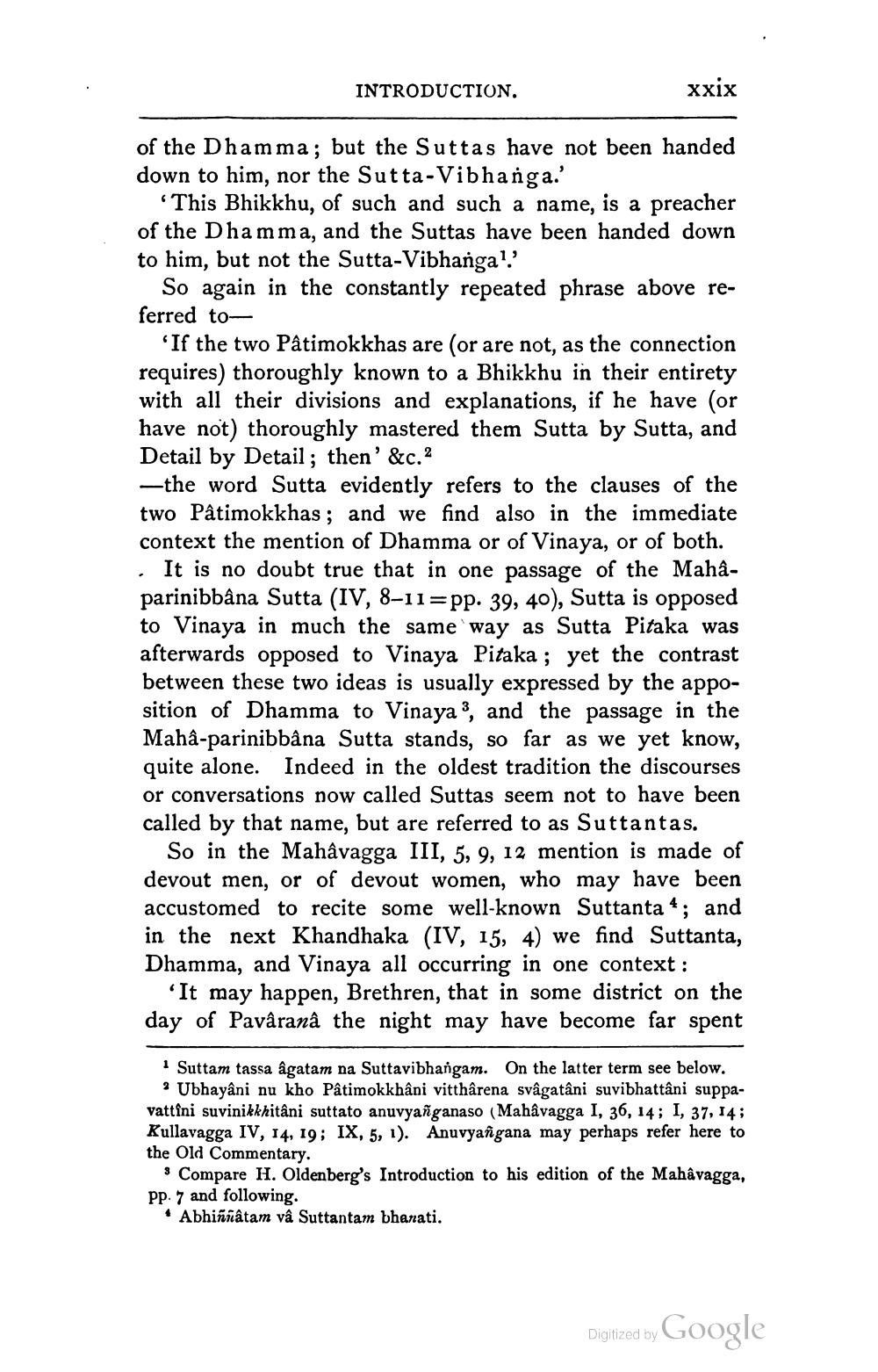________________
INTRODUCTION.
xxix
of the Dhamma; but the Suttas have not been handed down to him, nor the Sutta-Vibhanga.'
This Bhikkhu, of such and such a name, is a preacher of the Dhamma, and the Suttas have been handed down to him, but not the Sutta-Vibhanga?'
So again in the constantly repeated phrase above referred to
'If the two Pâtimokkhas are (or are not, as the connection requires) thoroughly known to a Bhikkhu in their entirety with all their divisions and explanations, if he have (or have not) thoroughly mastered them Sutta by Sutta, and Detail by Detail; then' &c.2 -the word Sutta evidently refers to the clauses of the two Pâtimokkhas; and we find also in the immediate context the mention of Dhamma or of Vinaya, or of both. · It is no doubt true that in one passage of the Mahâparinibbâna Sutta (IV, 8–11=pp. 39, 40), Sutta is opposed to Vinaya in much the same way as Sutta Pitaka was afterwards opposed to Vinaya Pitaka; yet the contrast between these two ideas is usually expressed by the apposition of Dhamma to Vinaya?, and the passage in the Mahâ-parinibbâna Sutta stands, so far as we yet know, quite alone. Indeed in the oldest tradition the discourses or conversations now called Suttas seem not to have been called by that name, but are referred to as Suttantas.
So in the Mahâvagga III, 5, 9, 12 mention is made of devout men, or of devout women, who may have been accustomed to recite some well-known Suttanta *; and in the next Khandhaka (IV, 15, 4) we find Suttanta, Dhamma, and Vinaya all occurring in one context :
'It may happen, Brethren, that in some district on the day of Pavâranâ the night may have become far spent
Suttam tassa âgatam na Suttavibhangam. On the latter term see below.
Ubhayâni nu kho Pâtimokkhâni vitthârena svâgatâni suvibhattâni suppavattîni suvinikkhitâni suttato anuvyañganaso (Mahavagga I, 36, 14; I, 37, 14; Kullavagga IV, 14, 19; IX, 5, 1). Anuvyañgana may perhaps refer here to the Old Commentary.
3 Compare H. Oldenberg's Introduction to his edition of the Mahâvagga, PP. 7 and following.
• Abhiniâtam va Suttantam bhanati.
Digitized by Google




